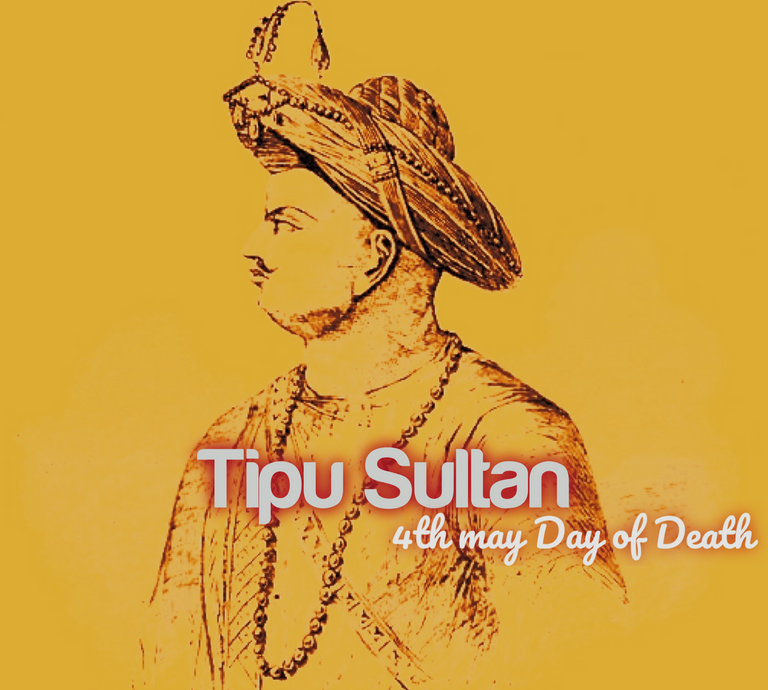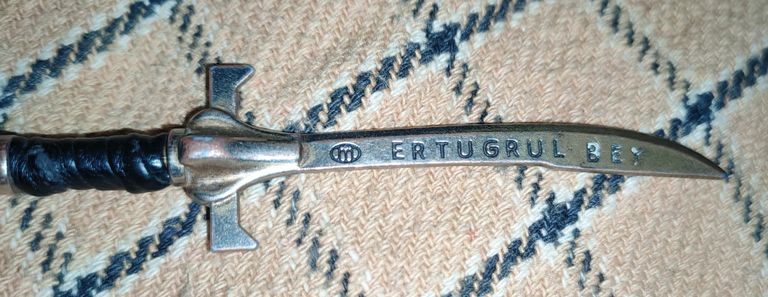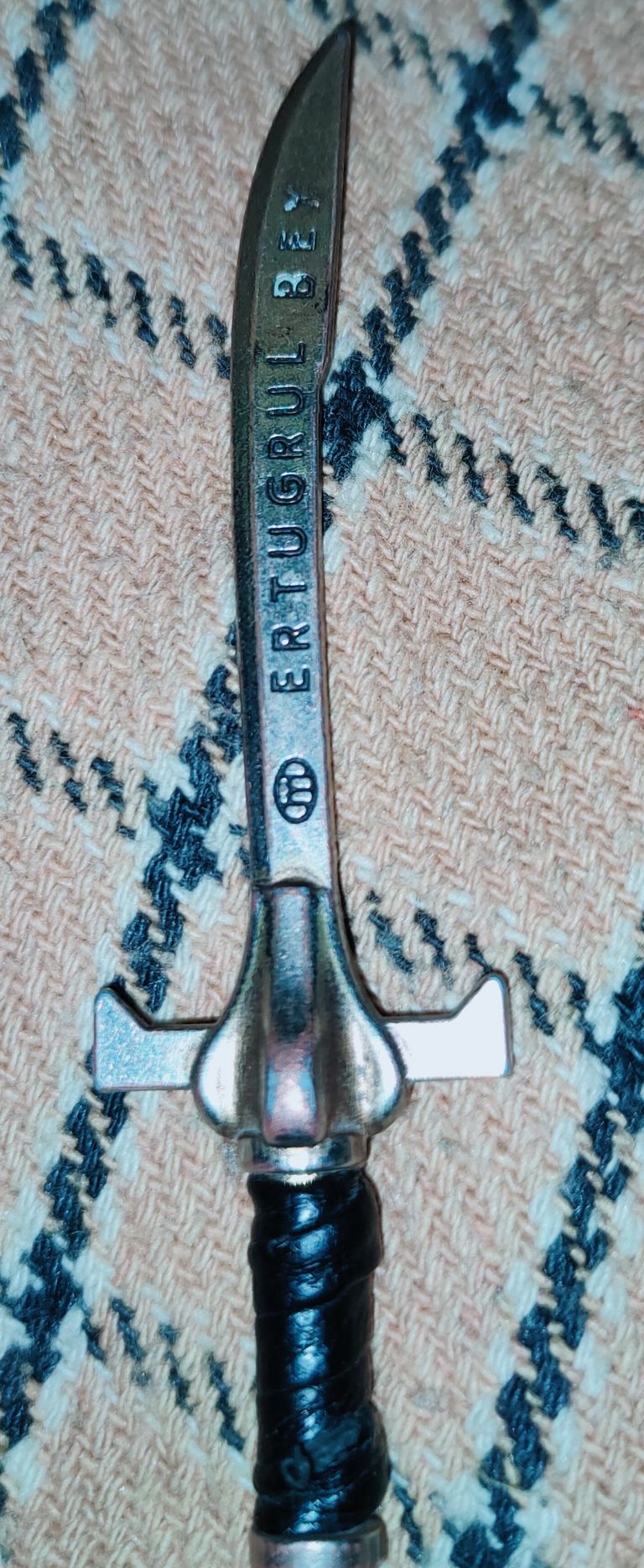
"The sky also cried"
When the body of Tipu Sultan Shaheed was being lowered into the grave, according to a tradition, when Qazi Umar was leading the funeral prayer, a strange incident happened.
It happened that even though it was hot weather, there were such lightnings in the air that it seemed that the sky was going to break and fall to the ground.
After the thunder and lightning, it suddenly started raining, while the British soldiers were firing their guns in the air to give the last salute to the Sultan, but the sounds of their fire were muffled by the thunder, as if nature was saying. Today we are welcoming our servant in the sky with the sounds of cannons thousands of times bigger than you. It was not the rainy season but the sky was still raining as if he also shed tears and joined the grief of the people of the earth. was
In the same way, lightning struck the camp of the English army in Mumbai on the same night, killing two British soldiers and injuring several others.
Even the people locked in the houses were shaken, the eardrums started bursting with the terrible sounds of the clouds, the river Kaveri also had an unusual flood that night. They had never seen a flood before


This child of Islam reached the gardens of paradise under the first manna of soil before the sunset and was freed from worldly fatigue and found eternal comfort.


"The sky also cried"
When the body of Tipu Sultan Shaheed was being lowered into the grave, according to a tradition, when Qazi Umar was leading the funeral prayer, a strange incident happened.
It happened that even though it was hot weather, there were such lightnings in the air that it seemed that the sky was going to break and fall to the ground.
After the thunder and lightning, it suddenly started raining, while the British soldiers were firing their guns in the air to give the last salute to the Sultan, but the sounds of their fire were muffled by the thunder, as if nature was saying. Today we are welcoming our servant in the sky with the sounds of cannons thousands of times bigger than you. It was not the rainy season but the sky was still raining as if he also shed tears and joined the grief of the people of the earth. was
In the same way, lightning struck the camp of the English army in Mumbai on the same night, killing two British soldiers and injuring several others.
Even the people locked in the houses were shaken, the eardrums started bursting with the terrible sounds of the clouds, the river Kaveri also had an unusual flood that night. They had never seen a flood before


This child of Islam reached the gardens of paradise under the first manna of soil before the sunset and was freed from worldly fatigue and found eternal comfort.

Tipu Sultan was born on 20 November 1750, corresponding to Friday 10 Dhu al-Hijjah, 1163 AH at Dewanhali. Presently it is the seat of Bangalore Rural District, located 33 km north of Bangalore city. Tipu Sultan was named after the sage Tipu Mastan Auliya of Arcot. When Tipu Sultan came to his senses, the evil feet of the British were advancing rapidly, trampling on one after another the kingdoms of India. He had captured the Nizam of Hyderabad, Maratha and Arcot states, only the state of Khudadad stood in his way, which was equally in the eyes of the East India Company. At the age of 17, Sultan Hyder Ali gave Tipu Sultan free rein over important diplomatic and military affairs and he soon won the heart of his father Majid Hyder Ali with his intelligence, resourcefulness and superior leadership skills.
Tipu fought the second war against the British in January 1779 under the care of his son-in-law Sultan Hyder Ali, forcing officers like Colonel Baillie, Colonel Berthwaite Sir Cote and Brigadier General James Stuart to kneel. During the war, in December 1783, Hyder Ali Rahi became an invalid
Tipu Sultan assumed power on 20 Muharram 1196, corresponding to 27 December 1782. On the one hand, Tipu had the honor of owning a vast empire rich in rich natural resources and a stable and orderly state, on the other hand, he also inherited the enmity of a group that fueled internal and external intrigues and intrigues against the state.
At the time Tipu Sultan was sitting on the throne, the kingdom of Khudadad was spread over four hundred miles and the total area was 80 thousand square miles. The number of the army was 180 thousand, 60 thousand horses, half of which were Arabian horses, 6 thousand camels, 9 hundred elephants, more than 2 lakh swords, 220 big cannons, 6 lakh different types of guns besides other weapons. were The annual income was more than seven and a half crores.
Tipu Sultan was a great mujahid as well as a staunch Muslim. They lived a simple life and wore Sharia clothes and in the last period they started wearing green dastaar. He would recite the Fajr prayer and perform ablution throughout the day. They were so committed to prayer that when the occasion came for the inauguration of the Great Mosque in Srirangapatnam, the question arose as to who would lead the prayer. For whom no prayer has been performed. After a while, the sultan stepped forward and said, Alhamdulillah, I am Sahab Sahib and led the prayer. Sultan Nibas was timely, far-sighted and a great administrator
Tipu Sultan made every effort to form a strong front against the East India Company to free Mother India from its rule. Every small and big state of the country sent their ambassadors and letters to Jaipur, Jodhpur and Nepal etc. On June 23, 1785, he expressed his desire to fight against the British by writing a petition in the service of Mughal Emperor Shah Alam. He tried to explain Hyderabad system from every aspect. The Nizam and the Marathas saw Tipu's growing power as a threat to their survival and allied themselves with the British. Tipu Sultan tried to get help from Turkey, Iran, Afghanistan and France but could not succeed. can never be compared to old and outdated war equipment. Hence, he implemented far-reaching military reforms and equipped his forces with modern technology. He invented the rocket which robbed the British of peace by day and peace by night. He not only concentrated on infantry and colliery but also added a naval fleet to his army. The formation of the navy was a great achievement of the Sultan. He was one of the rulers of India who first realized the importance of sea routes and established their formal order.
Compiled the book "Fath Al-Mujahideen" for military rules. The use of electric wires instead of iron to protect ships from magnetic mountains is the religion of the Sultan. Although Tipu Sultan spent most of his time on the battlefield, he spent whatever time he had for the prosperity of the state and the welfare of the people. The number of different departments he established in his empire was 99.
Tipu Sultan started a campaign to involve the subjects in the administration of the empire and established a Majlis 'Zamra Gham Nadshid' which led to consultative government instead of personal rule. He built a dam on the Kaveri River. Foundation, where later the Government of India constructed the Krishna Raja Dam. The silk industry is owed to Tipu Sultan. The temple on Chamanda Hill in Mysore used to offer human heads to the goddess's feet, this tradition was stopped by Tipu Sultan. Before Tipu Sultan, Dalit Hindu women in the state of Trao Nakur tried to stop the tradition of exposing their chest and head to its rulers and only realized that it was closed.
Religious tolerance was rampant within Tipu Sultan. He built the first church in Mysore at the request of the French and sponsored countless temples. In 1791, the Maratha chieftain Raghunath Rao and his associates attacked the temple at Sarnigiri, plundered it and took away the diamonds, jewels and wealth in the temple, killing many people. The chief priest cried out to Tipu Sultan. Sultan Raghunath was furious at this disgraceful act. He wrote to the high priest, "Those who have committed this dirty and heinous act against a holy place will surely bear the consequences of their sin very soon and further wrote that people do cruel and wrong things while laughing and smiling." And suffer the consequences while crying." About this, 30 letters of correspondence between Tipu Sultan and the priest are available in the Mysore Historical Library.
Tipu Sultan tried his best to save India from slavery but all his efforts went in vain due to treacherous homeland and unfavorable conditions. Along with the nexus of the British, the Marathas and the Nizam of Hyderabad, along with the snakes up their sleeve, Mir Sadiq, Pandit Purnia, Mir Ghulam Ali (lame) Badr-ul-Zaman Khan Nitah, Mir Moinuddin, Mir Qamaruddin, Mir Qasim Ali Patel and Mir Nur-ud-Din died after martyring the lion of Mysore.
From 1761 to 1796, there were not one but nine successive battles between the British and Empress Mysore Lakshma, the Marathas and the Nizam to wipe out the Khudadad Empire. Apart from this, an agreement dated 1782 between Rani Lakshma and the East India Company was also executed to establish Hindu Raj in Mysore. Mir Sadiq's treachery could not come to light like Mir Jafar because he had gone to hell in 1799, but Pandit Purnia's treachery came before the whole world.
During the last battle of Mysore, when Tipu's defeat was assured by the intervention of the Baghli enemies, he resisted the besieging British and closed the fort, but the treacherous companions opened the gate of the fort to the enemy and A fierce battle broke out in the fort grounds. The resistance became weak due to the fire in the gunpowder storage, on this occasion the French officer advised Tipu to flee to Chitradurga and save his life, but Tipu did not agree and on May 4, 1799, bravely and courageously took the iron in the battlefield. Martyred.
As soon as the British General Horse heard the news of Tipu Sultan's martyrdom, he came to see Tipu Sultan's body and shouted with great joy, "India is ours from today."
Beliefs were not affected. This allegation is against common sense that Tipu was against Hindu-Muslim harmony and he oppressed the Hindus; Because even in the campaign to take iron from a power like the British Empire, if they kept the behavior of internal religious bigotry and drew a line of mutual anarchy, then Tipu's fight against the British would have been weakened by this process and the East India Company would have weakened the country. The struggle to be evicted would go to hell.
As far as Tipu is accused of forced religious conversion, it is completely baseless and like distorting the spirit of history. Tipu was certainly a Muslim king, but he kept religion separate from his kingdom and religious tolerance with his subjects. What is the behavior of freedom of belief, history is a witness to it. However, in the history of Tipu, there is a remarkable incident under the title of change of religion. While analyzing it historically, the historian Muhibul Hasan wrote in his book that actually this change of religion Rebels were punished for rebellion and its status was not religious but political and there was no religious motive behind it, but this effective tactic was used by Tipu to suppress the rebellion. Suppression of all forms of rebellion was necessary in order to wage tough battles against the British and to rid India of British brutality. Could murder be a better alternative to conversion? In this sentence, from the political point of view, there are great interests for both the king and the rebellious subjects, which every wise politician and warlord can understand. In one of his letters, he himself writes that 'I made a person named 'Nairus' accept Islam because he had rebelled six times before and I forgave him each time. At this juncture it should be remembered that this punishment for rebellion and conversion was based on temporary expediency and was imposed only in the 'Malabar' and 'Coorg' region and not in the rest of the kingdom.
While doing a historical analysis of the religious policy in Tipu's kingdom, we usually forget that some cases of religious conversions happened in his kingdom, both freely and willingly. , was inspired by humanitarianism and high morals and adopted the religion of Islam, there were some who did this for the closeness of the Sultan and his flattery, however, Tipu forced the conversion of religions for no reason, there is no solid historical evidence for this claim. There is no evidence. To know the facts in Tipu's case, we can neither rely on the historical books written by Christians, because the writings of the English writers are inspired by the spirit of vengeance towards them, nor on the modern-day Sangha-minded historians. The documents written by him are trustworthy; that he too has taken an oath to follow the Christian lobby in this matter, so the historical book by which Tipu's connection was raised by reference is inspired by English thinkers in the style of fiction. It is a book written which is not more reliable than other historical books.
The historical truth is that the son of Hyder Ali of Mysore and this sultan of the kingdom of Khudadad
The historical truth is that the son of Hyder Ali of Mysore and the Sultan of Khudadad Kingdom is one of the few rulers of India who fought many successful wars against the British Empire for the freedom of the country. British imperialism was constantly increasing its conquests, in the same period, two Mujahid kings were born in South India whose names are recorded in golden letters in the history books, these two names are Hyder Ali and Tipu Sultan. The British in the whole country. If they had to face a tough competition and their aggressive steps were stopped somewhere, it was a part of the kingdom of Khudadad, whose spirit was Tipu Sultan. This brave King of Mysore gnashed the teeth of the British and was martyred at Serangapatam during the long and famous war of 1799/1799 between the Kingdom of Mysore and the British with the historic phrase 'A day's life of a coward is better than a day's life of a Gedar'. Pie This message of Tipu made in the hearts of his countrymen hatred of British slavery and desire for freedom, which later resulted in a fruitful struggle for freedom, thus we can call Tipu the starting point of freedom movement. After the martyrdom of Tipu Sultan, the commander of the British army, General George Harris, said that now India is his and "I have conquered India". There were threats and how important and necessary their martyrdom was for ruling India. On the other hand, despite their thousands of claims of patriotism and desh bhakti, history has witnessed that the Singh Brigade always remained loyal to the British Empire. Whether it was Gandhi's 'non-cooperation' movement in 1921 or 'Quit India Movement' in 1942 or other similar freedom movements, the attitude of the Sanghis was always one of loyalty to the British and their So, if the country does not celebrate the birthday of patriotic Mujahideen like Tipu Sultan, will the country celebrate people with Sanghi ideals like Godse, Savarkar and Golwalkar?
Apart from being a distinguished general, Tipu Sultan was also a good reformer. He was an educated and a pious person. The vein was attached to the vein. He laid the foundations of a system of government in South India and established an empire which is an example for the country and abroad. The rulers who came later could not implement such plans. Despite the Babang Dahal slogan of "Ka Saath, Sab Ka Vikas aur Sab Ka Insaaf" is the most devastated and willing to commit suicide. According to historians, such a revolutionary step taken or taken in favor of the farmers has been ignored by the eyes of history till date. Not seen. The land reforms done during Tipu's era by abolishing feudalism not only made the lands that had been idle for centuries become cultivable, but also improved the economic condition of millions of farmers and the country saw new ways of development. Banks were established for the first time in the state. History tells us that as long as Tipu Sultan was in power, he did not allow anything to come into the country from outside, even salt started to be produced in the country. , the state of Mysore not only became self-sufficient in the industry of wooden goods, silk products and iron etc., but also started exporting many goods. He made many social and economic reforms in his state which made the whole state prosperous. The prosperity of the state of Mysore has been acknowledged by an Englishman of that time in these words: 'Mysore is the greenest region in India, Tipu ruled here, the inhabitants of Mysore are the most prosperous, on the contrary, the British conquests p. They are evil blots on the world, where the subject is bound by legal tortures.
He enlightened the country with numerous and useful administrative and welfare measures during his rule. The system of revenue derived from land production, the coinage of the country, the combined solar and lunar calendar and the development of the silk industry in South India, are all monuments to Tipu# who made his country Friendship, poverty-loving, secular temperament and enlightenment are well understood. The well-known historian of the country Irfan Habib says in the context of Tipu's services that the development of the silk industry in Mysore and its surroundings is actually the result of Tipu Sultan's poor-loving rule. Manta. Karnataka alone accounts for more than 70% of the country's silk industry, with Mysore district producing the most. Full credit goes to Tipu for developing the silk industry in the country and it is acknowledged by all historians. Irfan Habib says that if Tipu Sultan reconciled with the British during his time, he would have got the kingdom not only of South India but of the entire country as the British Empire had repeatedly offered him. The system also has a prominent position, the current advanced missile system of the country is also part of their defense strategy which they developed in the war of 1799 against the advanced defense system of the British, that is why Tipu is the rocket manufacturer in the subcontinent. The late Dr. APJ Abdul Kalam, who is said to be the inventor, also mentions it and writes that 'I am happy to see that 'NASA' has appointed a King of India (Tipu Sultan) as Rocket Man.